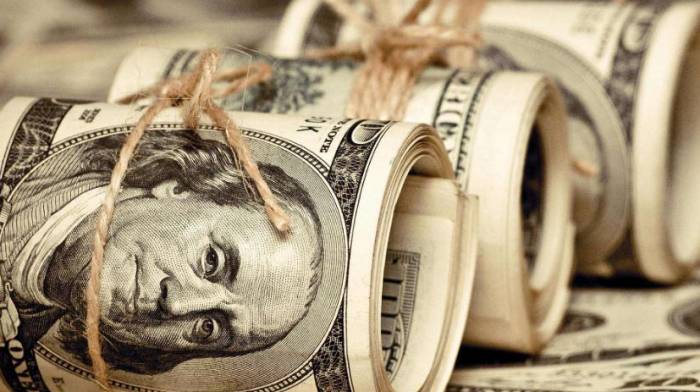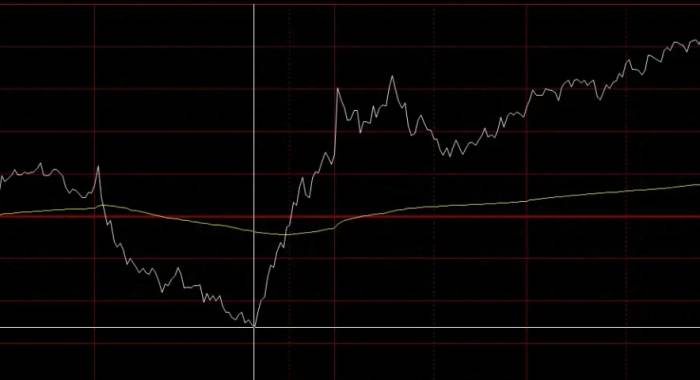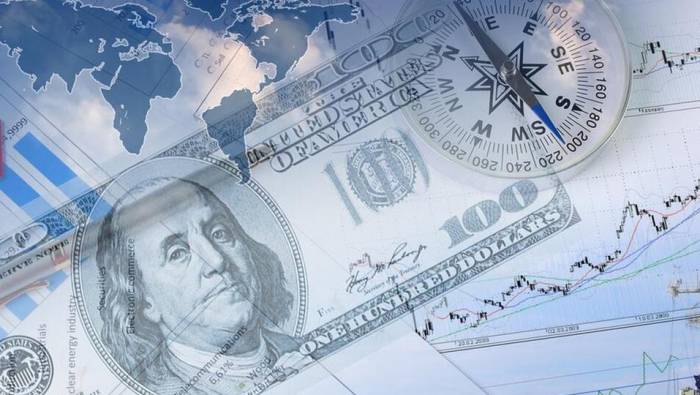Over the past few days, we have been reflecting on why the US dollar suddenly decided to cut interest rates ahead of schedule in September.
What are the unnoticed things hidden behind this seemingly illogical operation?
Previously, we focused most of our attention on domestic issues in the United States, such as whether the US economy is experiencing a recession or if internal struggles have reached a conclusion.
However, do Americans only focus on domestic matters?
Of course not!
Where would they then be concentrating their attention?
Naturally, it's Asia!
So let's examine what has been happening in the Asian financial markets recently.
The two most important countries in Asia are China and Japan.
This year, Japan's financial market has been severely battered, and there's no need to elaborate further.
What about us?
Our stock market has plummeted, and a series of new policies introduced this year have had little effect.
Recently, the Shanghai Composite Index has fallen below 2800 points again.
The market conditions in other major Asian countries are also quite grim.
Singapore, the financial hub of Asia, has always been a model for the entire continent.
Many believe that Singapore's governance environment and the sophistication of its financial markets far surpass those of other Asian countries.
However, the Singapore stock market has also suffered.
The Singapore stock market's performance has not been weak; on September 13th, the Straits Times Index reached a high of 3572.84 points, setting a new high since June 2018, with a year-to-date increase of 10%.
So, what's the problem with the Singapore stock market?
In fact, due to low trading volumes, a decrease in the number of IPOs, and a series of delisting events, the Singapore stock market faces unprecedented challenges.
According to PwC research, the exchange was at a global low in terms of IPO numbers and fundraising last year.
In the first half of this year, there was only one IPO on the Singapore Exchange.
On September 16th, local time, Singapore announced a market rescue, with the country's Senior Minister of State for Finance, Indranee Rajah, stating that Singapore is preparing to boldly reform its regulatory structure to revive the sluggish stock market.
The South Korean stock market is also in trouble.
Since reaching a high of 3316 in June 2021, the South Korean Composite Index has entered a three-year-long downtrend, currently hovering around 2600 points.
South Korea has been trying to rescue its market since last year, even introducing stringent regulations such as a ban on short selling.
Recently, Vietnam has also intervened in the market.
This year, Vietnam's stock market has been lukewarm, even witnessing a strong wave of selling by foreign investors.
Since the beginning of this year, foreign investors have net sold 62.4 trillion dong (approximately $2.53 billion), surpassing the total net sales for the whole of 2021.
To boost the stock market and attract foreign capital inflows, the Vietnamese Ministry of Finance officially issued a notice on the evening of September 18th, revising and supplementing some regulations related to stock trading system transactions, with the new regulations to take effect on November 2nd.
Singapore, South Korea, and Vietnam are all trying to rescue their markets, indicating that the Asian financial market as a whole is in a slump.
In the past two years, the US dollar's interest rate hikes have pushed the Asian financial market to rock bottom, especially the aggressive operations by the Americans in the first half of this year, leading to a large-scale devaluation of major Asian currencies, further lowering the prices of Asian assets.
This is precisely the time for the US dollar to scoop up bargains!
Perhaps the US dollar's interest rate cut at this time is precisely targeting the entire Asian market, which is the world's biggest prize!
Let's look back again, are the problems within the United States serious?
They seem serious, but these are not the most important issues.
The interest rate cut by the US dollar is welcomed by Harris as a cause for celebration for Americans suffering from high prices.
Trump, on the other hand, stated that the Federal Reserve's move to cut interest rates by 50 basis points indicates that if they are not just playing politics, then the economic situation must be very bad to warrant such a cut.
This is very close to our judgment; the US dollar should not have cut interest rates, but now it has done so suddenly ahead of schedule, either because the US economic situation is very bad, or because the internal struggles in the US have reached a conclusion.
Before any of these issues have a clear conclusion, cutting interest rates is a risky move.
The result is that the US dollar has suddenly cut interest rates, and we have all been duped by the Federal Reserve!
As the global financial hegemon, Americans are naturally focused on the world, and certainly not limited to domestic issues.
Whether the US economy is in recession or whether the internal struggles are won or lost, these are not the most important considerations.
The global capital market is the most important battlefield for American financial sharks!
And it is they who control the initiative of US dollar interest rate cuts.
If the US can use this tide of US dollars to snatch back more wealth from the world, the domestic issues in the US will naturally be easier to deal with.
In fact, this issue has always been the most important goal of US dollar interest rate hikes, and it has been overlooked by many at the last moment!
So, for the US, where is the most important place?
Of course, it's Asia!
However, in the past month or so, Asian currencies and financial markets have shown signs of rebound, such as the appreciation of the Chinese yuan and the Japanese yen.
If we wait any longer, and the Asian financial markets recover, the opportunity to scoop up bargains will be gone.
Therefore, the US dollar's interest rate cut in September is likely an attempt by the Americans to take over the entire Asian market.
At this critical moment, it is in the common interest of Americans to act in unison, so they have temporarily compromised internally.
This may be a more reasonable explanation for the US dollar's interest rate cut in September.
Next, the Americans are coming, and we must be vigilant and cautious of a potential plunder.






Leave a Comment